The Power of Women
As ISSA celebrates its 100th year anniversary in 2023, it’s impossible not to notice the impact that women in leadership have had in recent years and, for veterans in the industry, going back several decades as well.
Here is some perspective.
Just over one hundred years ago, in 1920 to be exact, women did not have the right to vote in the United States of America. But the 19th Amendment changed that.
One hundred years ago, women had limited access to education, were even discouraged from seeking higher education, and were hindered from pursuing many fields of study, especially those dominated by men, such as medicine, law, and politics.
One hundred years ago, women often faced restrictions on property ownership or inheriting property.
One hundred years ago, women had limited legal rights and often were not allowed to enter into contracts, sue others, and retain custody of their children in the event of a divorce.
One hundred years ago, women were either excluded from certain career positions, and if they were granted a position, it was at a much lower rate than paid to men. The common belief was that a woman’s primary role was as a wife and mother in the home.
One hundred years ago, what is now known as ISSA was founded, and your worldwide cleaning industry association has contributed to the advancement of women, with one of the most noteworthy ways being the formation of the ISSA Hygieia Network.
And today? Women are entrepreneurs, CEOs, board members, presidents, leaders, and managers within their organizations, owners of Fortune 500 companies … all while handling everything that encompasses their personal lives.
How we got to where we are today may have started slowly, but it quickly picked up steam as culture and business evolved, and now, in 2023, we see and enjoy a different world compared to the year ISSA was born 100 years ago.
While progress has been made, challenges persist. Gender disparities still exist, particularly at the highest levels of corporate leadership. Women continue to face obstacles, such as unconscious biases, gender stereotypes, and work-life balance challenges. However, the advancements of the past century have set a strong foundation for continued progress and an ongoing commitment to achieving gender equality in business leadership. Recently, ISSA invited a select number of women in the industry to share thoughts on their journeys, accomplishments, and advice for others. The following features how women are making a difference in the industry today. Read on and learn about the impact they are making.
Q: What is your best advice for young women starting their careers in the cleaning industry?
Laura Craven, vice president of marketing, Imperial Dade: Take charge of your career trajectory. Think about what you want to be doing professionally in five, 10, and 15 years, and map out multiple paths to get there. Determine the experience, education, and professional network you need to reach your short- and long-term goals and get to work!
Wendie Manion, vice president of sales, strategic accounts, Impact Products: Do not doubt or second guess your abilities. You may not always feel ready, but if you aren’t afraid to work hard, take coaching, and are open to learning, you will succeed.
Susan Gambardella, president of Kimberly-Clark Professional North America: Adopt a growth mindset that is focused on continued lifelong learning and views challenges and obstacles as opportunities for growth. Everyone has setbacks, but we can learn from them and make continued progress. Then, stay persistent in your positive and resilient behaviors. Ultimately, find an employer such as Kimberly-Clark Professional that empowers its teams to test and learn so its people can adjust, react, and learn in an agile way.
Kelly Vlahakis-Hanks, president, CEO, and chairwoman of ECOS: The key for me in creating a successful career was to find the right mentors and always to continue to learn. Mentorship provides encouragement, knowledge, and inspiration, which can make all the difference in making your passion a reality. And if you commit yourself to continuous learning and improvement, you will grow and develop to create tremendous value for your organization and yourself.
Debbie Sardone, president of Speed Cleaning and founder of Cleaning for a Reason, an ISSA Charity: You can do anything you want, but you can’t do everything. Do one thing better than anyone else. Stay focused and specialize. Stick with it when it’s unfulfilling, unrewarding, and boring. The compound effect of intense, single focus pays the highest dividends over time.
Karina Neff, vice president of technology at Pioneer: As a woman entering the cleaning industry, it is important to be aware of how your gender will affect your career trajectory and how to best position yourself for success. The cleaning industry has been dominated primarily by men, with women historically being underrepresented. Although we see more and more women enter the field each year, there is a long way to go to reach a balance. The representation landscape offers up both opportunities to seize and challenges to overcome. One of the best things about being a woman entering this field is that there is so much room for growth and development within it. If you are willing to put in hard work and dedication, there are limitless opportunities for advancement within any organization, regardless of size or type. The cleaning industry plays a vital role in maintaining the health and safety of our communities. Therefore, it is important to take pride and ownership of your work, be proactive in identifying areas for improvement, and always look for like-minded individuals who share a passion for your craft—whether it be technology, human resources, or operations.
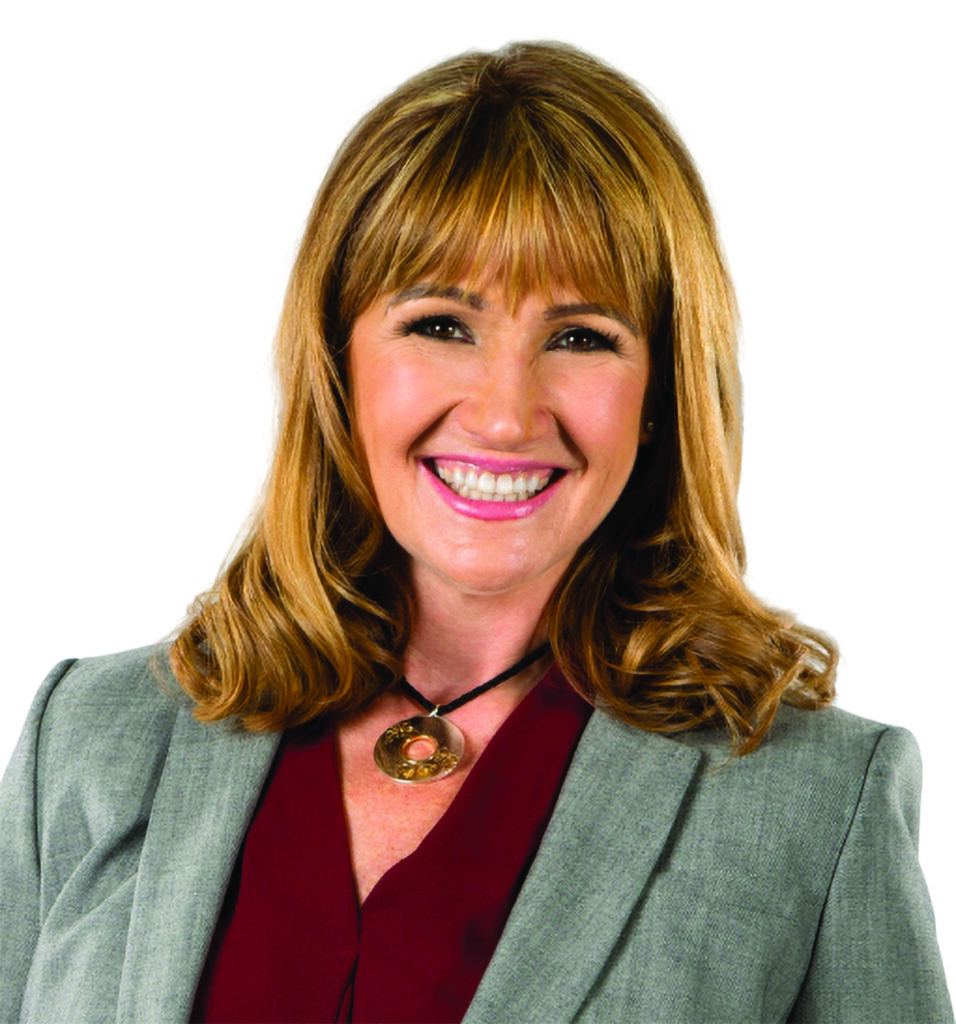 |
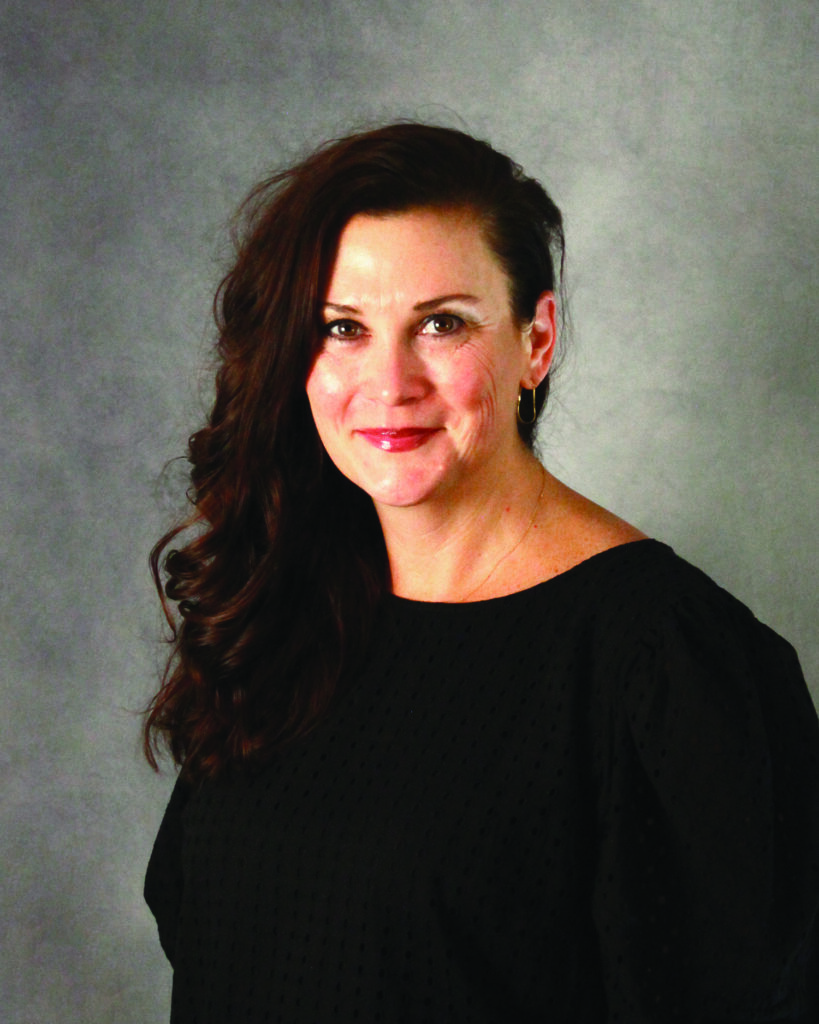 |
 |
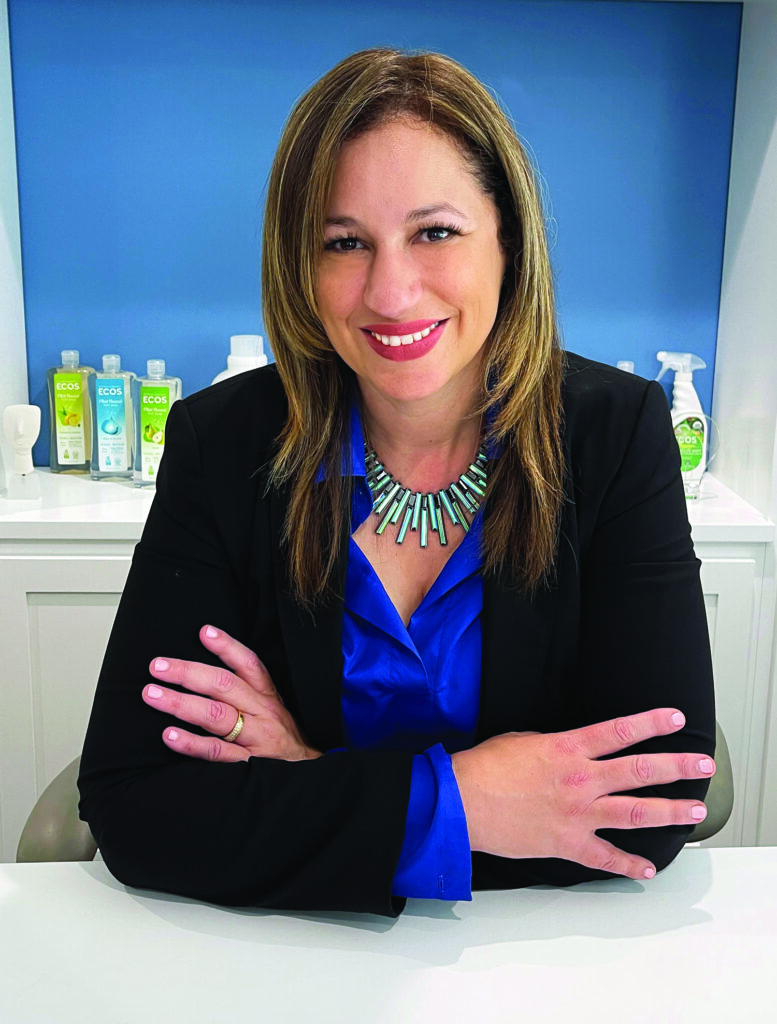 |
 |
| From left – Laura Craven, Wendie Manion, Susan Gambardella, Kelly Vlahakis-Hanks, Debbie Sardone | ||||
Q: If you could go back in time and speak to your 25-year-old self, what is the one thing you would encourage her to do differently?
Rachel Brutosky, vice president of sales, strategic accounts with Nilfisk Inc.: Be confident in herself and her abilities. When I was 25 years old, I took on a role that I may have been 75% ready for. Because of this, I doubted my competence and worried that my peers would see me as a fraud. After a few sleepless nights, I took a deep breath, developed a plan, and used the challenge as an opportunity to learn more about the company and the customers. I ultimately over-achieved in the role, which became a pivotal steppingstone to where I am today.
Linda Silverman, executive chairwoman at Maintex: I would encourage my younger self to develop expertise in the finance aspect of the business. My strengths were sales and marketing; however, a strong financial acumen is important as well.
Gambardella: I would tell her to go for opportunities to develop unique skills that provide differentiated value to the organization and recognize those opportunities for her to grow and develop. I succeeded in differentiating myself by leading special projects and initiatives and seeking unique opportunities to learn and grow to drive my career. I would also tell her to stop worrying about being perfect—a perfect employee, a perfect leader, a perfect parent. We are not perfect, but we have the opportunity to grow, develop, and leverage our unique strengths. You will get better results when you are the best version of yourself versus a poor version of someone else.
Craven: I would encourage that young woman never to settle for an unfulfilling job or an employer that did not treat her with respect. You do not have to be “stuck” in a job. As soon as you feel that way, then it is time to move on.
Vlahakis-Hanks: I would tell my younger self to have confidence in myself and to trust myself. With the courage of your convictions, you can develop the confidence to lean in. But you must also do the work to earn buy-in from your stakeholders—your team, your partners, and your consumers. I would also tell younger myself to lead with courage. It’s extremely important as you grow as a leader to be courageous—you have to inspire people to follow you, and you have to draw on your own internal strengths as well as the support of the people around you.
Renee Starr, senior vice president of sales with Essendant: Network, surround yourself with others in the industry, and learn from them.
Sara Gibbons, vice president, global amenities sales, with Gilchrist & Soames: “Lean in” at meetings. Listen, learn, take action, and follow up.
Marcela Sztainberg, senior vice president, human resources, with Essendant: Make sure to leave time for yourself and your family. Self-care is very important in how you feel and the energy you have to continue to grow and move forward.
Katie Snider, chief human resources officer, Network Distribution® : Be confident in your abilities even when you think you don’t know enough. You bring a lot to the table, including a different perspective that needs to be shared. Also, don’t forget to be curious. Ask questions. What you learn may be what others need to learn as well.
Neff: I would encourage myself to take more risks and embrace failure as a necessary step in the learning process. At that age, I was caught up in the fear of failure. I quickly learned that failure is not the end, but rather a steppingstone to success. By embracing failure and taking risks, I’ve become more resilient, confident, and bold.
Shannon Hall, vice president of sales and marketing with Dustbane Products Ltd.: Take time to celebrate the successes, big or small; time flies by, and when you look back and reflect, know that you are good enough. You deserve to be in the room!
 |
 |
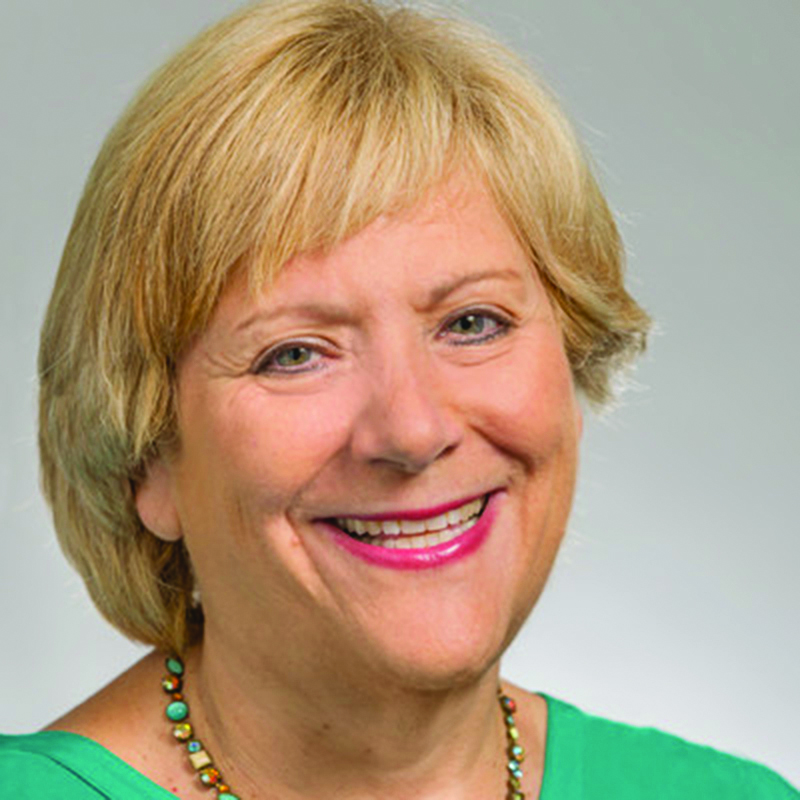 |
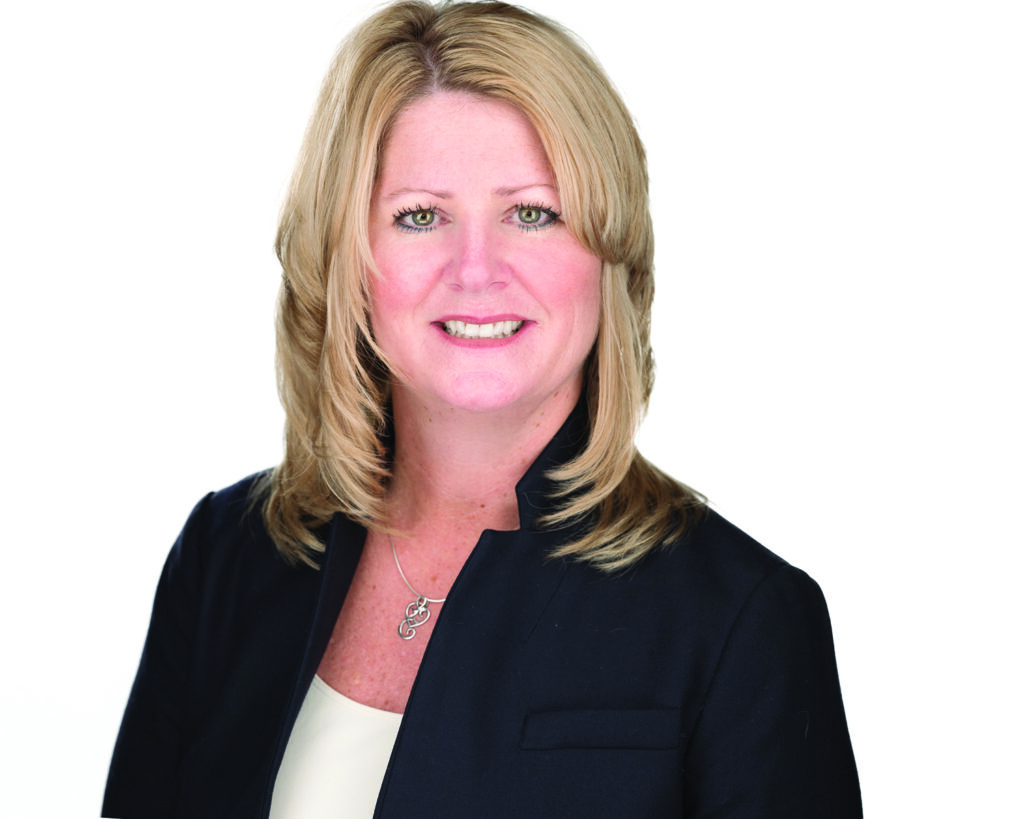 |
 |
| From left – Karina Neff, Rachel Brutosky, Linda Silverman, Renee Starr, Sara Gibbons | ||||
Q: Are there any specific tools or resources you have found valuable to your career?
Jill Frey, CEO and president, Cummins Facility Services: Two invaluable resources that have significantly contributed to my career advancement are the guidance of mentors and attending various trade shows in different regions and countries. Mentors have provided me with invaluable advice, insights, and support throughout my journey. Attending trade shows has allowed me to stay informed about industry trends and developments, enabling me to make well-informed decisions for my organization.
Sylvia Imm, director of national accounts, Kimberly-Clark Professional: Mentoring programs can be useful tools. Being mentored by incredible men and women, both within the ISSA Hygieia Mentoring program, Kimberly-Clark Professional’s mentoring programs, and externally, has been a game-changer for me. I have worked with both women and men who have fearlessly helped me to understand difficult truths about myself and helped me to change and grow. Also, I’ve mentored other men and women to pay that benefit forward and continue my personal growth journey by giving back. Strong leadership is also an important resource. Many Kimberly-Clark Professional leaders in my career have invested in my journey and have shown me a strong example of courageous and ethical leadership to emulate. Industry colleagues are also excellent resources. This industry has amazing camaraderie. Staying connected to customers and colleagues across my 30 years in this industry has helped me weather many ups and downs in my career. I have friends to turn to for advice, personal support, and friendship.
Kenisha Middlebrooks, manager, commercial and warranty, TTI Floor Care North America: ISSA Hygieia Network Mentoring Program allowed me to connect with leaders within the cleaning industry. Having someone that understands the industry enables your mentorship to be focused on sharing tools and resources instead of explaining the “why.”
Susanne Trotta, sales manager with Imperial Dade: Early in my career, I was mentored by Meredith Reuben (former owner of EBP Supply) as her vendor representative, only later to be hired as vice president of sales. Meredith provided the tools and tips to help in my professional growth and ensured my voice (a female voice) was heard during leadership meetings. I also received professional sales training: Dale Carnegie, Sandler, and Train the Trainer. I was fortunate to work for global organizations that provided robust sales and management training programs (Johnson Diversey, Sweetheart Cup), taking full advantage of learning, practicing, utilizing product, marketing, and negotiating skills training. I have taken advantage of networking with business leaders and owners (BOMA committee member and co-chair). Getting to know other people and companies within our industry was a valuable opportunity to step outside my own corporate “language” and broaden my knowledge of challenges faced by peers in their roles and how they managed through them, as well as how my customers viewed the value of what manufacturers and distributors bring.
Amy Ullsperger, strategic accounts manager, R.J. Schinner Co. Inc.: I have been fortunate to have a very supportive boss/mentor, who has been an incredible advocate for me and my capabilities and has given me many opportunities to showcase my skills through various levels of engagement. Having a champion within your company makes a huge difference, as it helps you grow and flourish within the constructs of your organization.
Mary LaGuire, corporate sales trainer/sales leader, Imperial Dade, Nichols Division: In my 21 years in this industry, I have worked in multiple departments, such as sales and sales management, channel marketing, brand management and marketing, corporate sales training, and as a manufacturer and distributor. Working in these different areas allowed me to gain additional knowledge, skill set, experience, and the opportunity to meet and work alongside people from different backgrounds from all over the world. These different roles not only enhanced my professional development but also broadened my viewpoint and perspectives, which I took with me to each new opportunity in my career. Each of these career moves took courage and risk-taking, and were out of my comfort zone. Along the way, I’ve had mentors encourage me to take on these career advancements and mentor me when it came time to apply, interview, and negotiate salaries. I encourage women to take risks, to try new things, and to seek out mentorships to help advise them along the way.
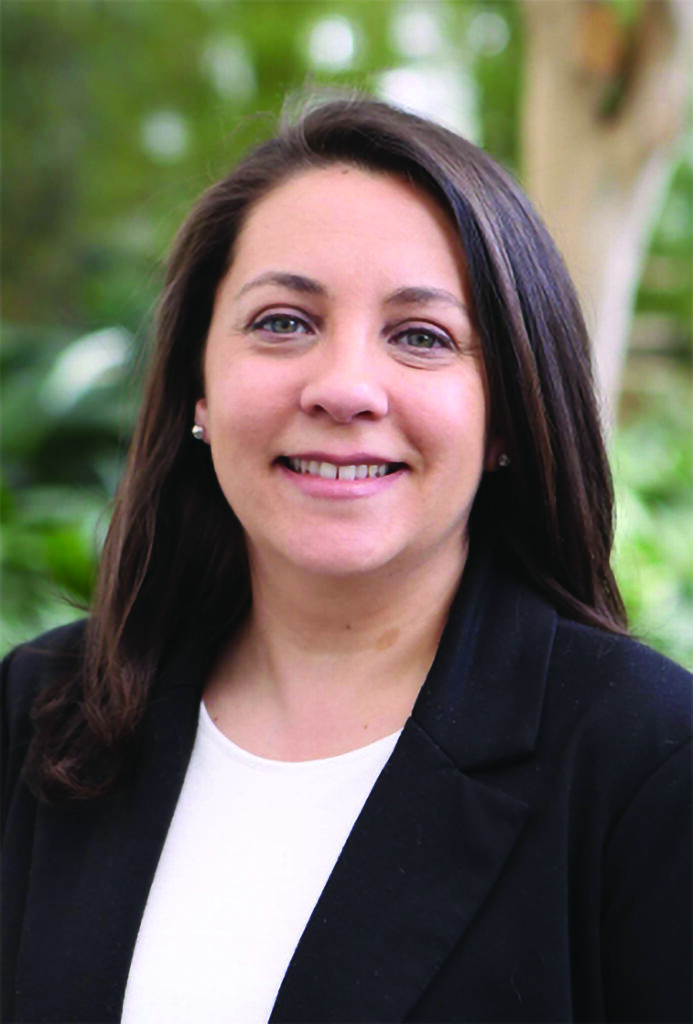 |
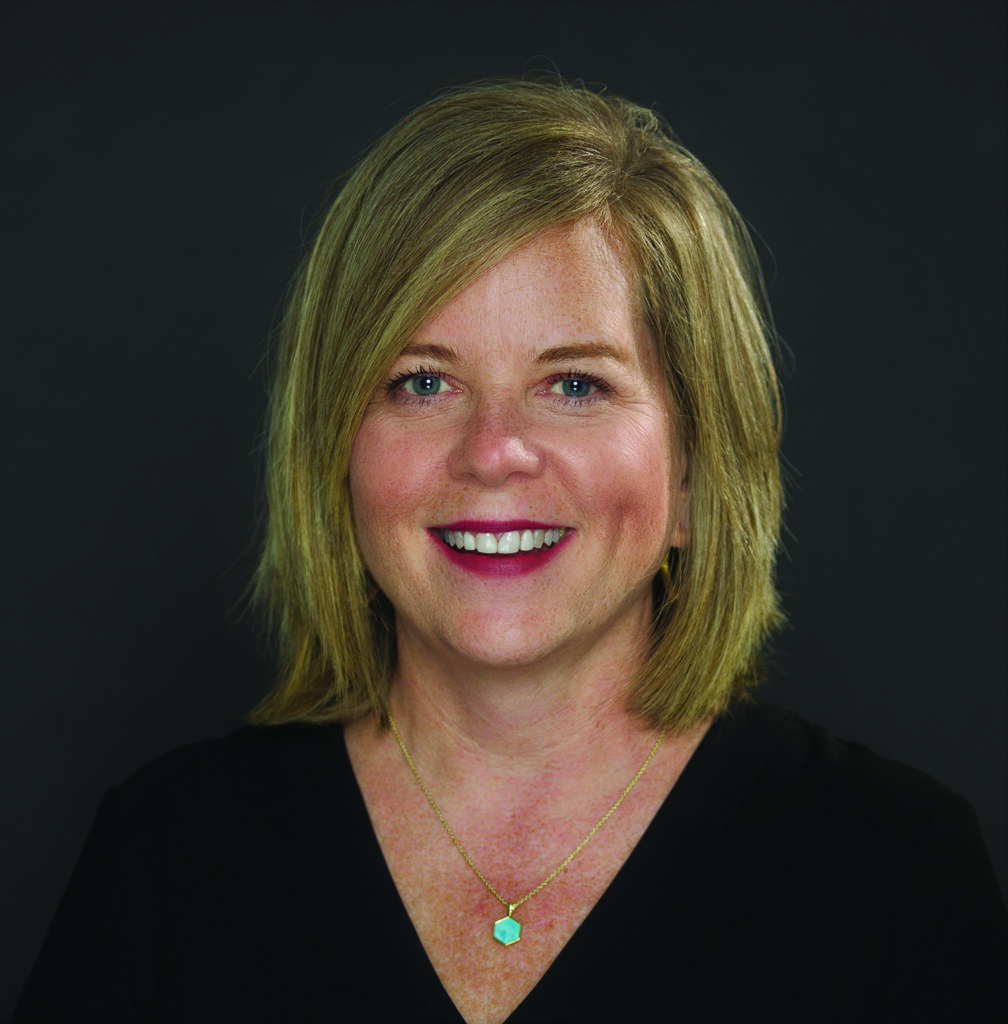 |
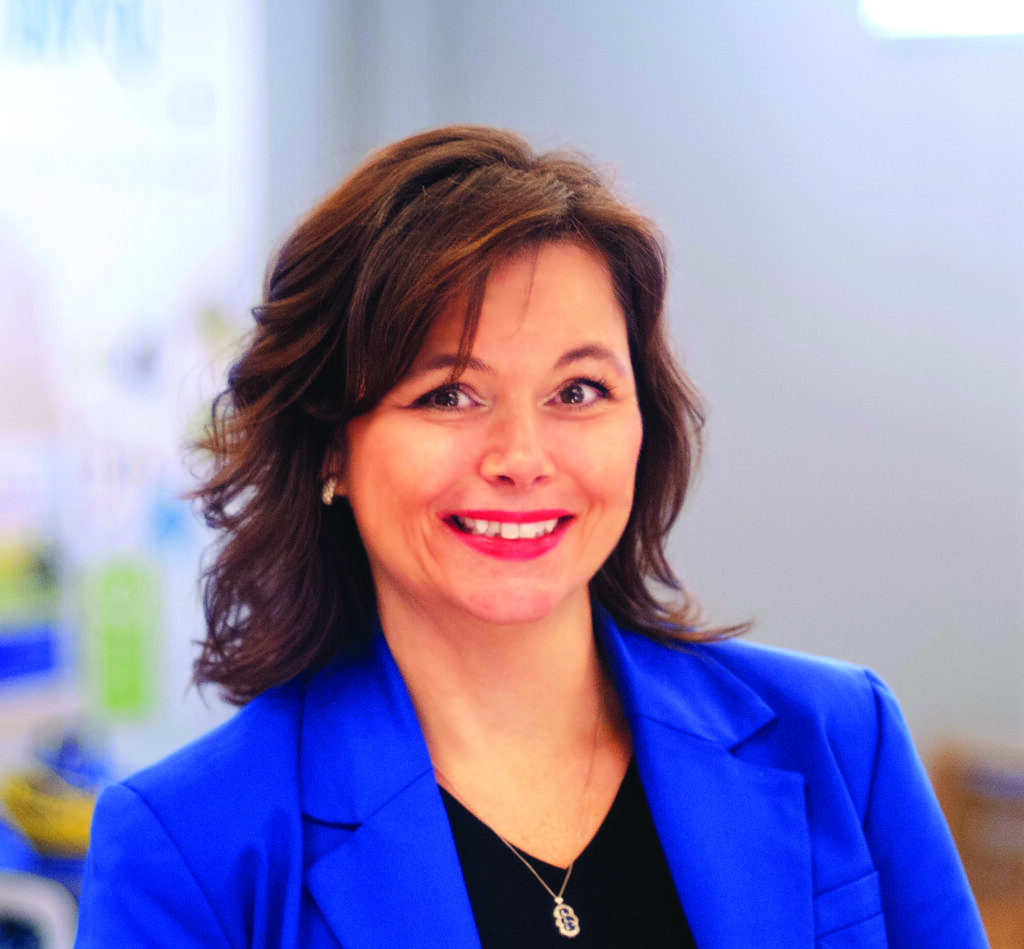 |
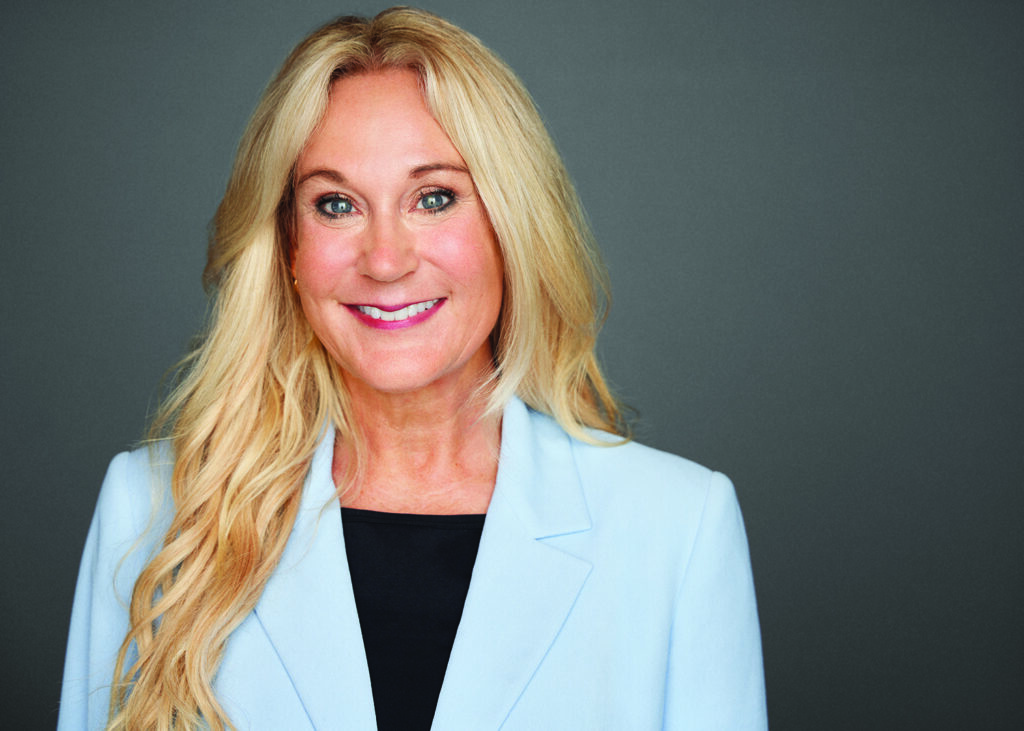 |
 |
| From left – Marcela Sztainberg, Katie Snider, Shannon Hall, Jill Frey, Sylvia Imm | ||||
Q: What are the key benefits of having women in leadership positions in the cleaning industry?
Shellie Jarus, sales director, facility solutions, with Matter Surfaces: Female leaders bring different skills, different perspectives, and innovative ideas to the table. Female leaders demonstrate to other women within the organization that career growth is possible.
Giorgia Giove, marketing manager with Sofidel America Corp.: Women in leadership positions in the cleaning industry bring diverse perspectives and experiences. Diverse teams are more innovative, and by promoting women to leadership positions, cleaning companies can tap into a wider pool of talent and ideas, leading to greater innovation and competitive advantage, helping companies to better understand and connect with diverse customer groups. Women in leadership positions can also serve as positive role models, inspiring others to pursue their own career goals, breaking down barriers and stereotypes.
Holland Russell, accounts receivable manager, financial business solutions, with Kärcher North America Inc.: Women bring different experiences and perspectives to the table, which can help inform decision-making and lead to more creative solutions to problems. Women tend to be strong communicators, which can be crucial in a service-oriented industry like cleaning, where clear communication is essential for customer satisfaction. Women often excel in empathy and emotional intelligence, which can be valuable in managing teams and dealing with clients or customers. Women in leadership positions can help to create a more inclusive and supportive company culture that values diversity and promotes equality. Overall, having women in leadership positions in the cleaning industry can lead to a more well-rounded and successful business that can better meet the needs of its customers and employees.
Jaclyn Helminiak, segment marketing manager with GP PRO: Having women in leadership positions helps bring a new perspective to a relatively male-dominated industry. Seeing women leaders is inspiring to young professionals in this industry and motivates me to take on a leadership role as well.
Frey: Having women in leadership positions within the cleaning industry offers several key benefits. Women often possess a unique blend of empathy, attention to detail, and a nurturing perspective, which can positively impact the quality of cleaning services provided. Furthermore, women leaders can offer diverse viewpoints and innovative solutions, contributing to the overall growth and success of the industry.
Kimberly Morgan, DEI senior director, GOJO Industries: Having women in leadership positions provides diversity of thought and experiences to be added to the decision-making and operations of the organization. It also serves as one of the primary ways to encourage other women to want to enter the industry—by seeing others who look like you, either doing or being what you want to do or be in the industry. So, visibility is critical, especially in senior leadership roles, to engaging other women and advancing it as well.
Imm: Over 53% of janitorial/housekeeper workers in the U.S. are women. Having more women in leadership roles throughout the cleaning industry can increase the retention of frontline women workers. Women who see their future selves reflected in leaders can be inspired to “tough it out” when the path becomes difficult. If someone else can do it, so can I!
Trotta: To me, it’s less about gender and more about expertise. If I can be someone that’s respected and looked up to for succeeding in what’s been a male-dominated industry, then I’m blessed. It’s important to have women in leadership positions in our industry because our industry is made up of both men and women, and both points of view provide a well-rounded perspective in motivating and supporting career growth. At the risk of generalizing genders, women tend to lean towards a team approach and team success. A team approach is very important in management as employees want to feel supported by their manager and their company. When an employee is supported, they tend to be more productive in their position and more likely to be retained and promoted.
Ullsperger: Women are excellent communicators with innate listening skills. This makes them natural collaborators, which is a critical skill for leaders. Women are naturally more nurturing, whether helping our teams grow and flourish or bringing a project from conception to reality. Women are skilled multi-taskers and logistical masters! We’re organized planners, able to think about and tackle many projects at once while also laying out the road map for the next project.
LaGuire: According to Forbes, research shows that companies with women in leadership roles and on their boards outperform those without by a significant margin, and organizations with great gender diversity among senior leaders are more profitable. Yet women made up only 32% of senior management roles in 2022. That is also reflected in the cleaning industry, where women comprise 50% of the workforce in general cleaning roles but hold few higher-level positions. Companies benefit by having women in leadership roles because women have different life experiences that they can bring to the table. They typically manage the family and home and juggle many things simultaneously. These skills translate to the workplace in the form of excellent communication and organization skills, broad perspectives and world views, creativity, and innovation. In addition, women leaders tend to have more emotional intelligence showcasing empathy, conflict management, and self-awareness, which are good traits of a leader.
 |
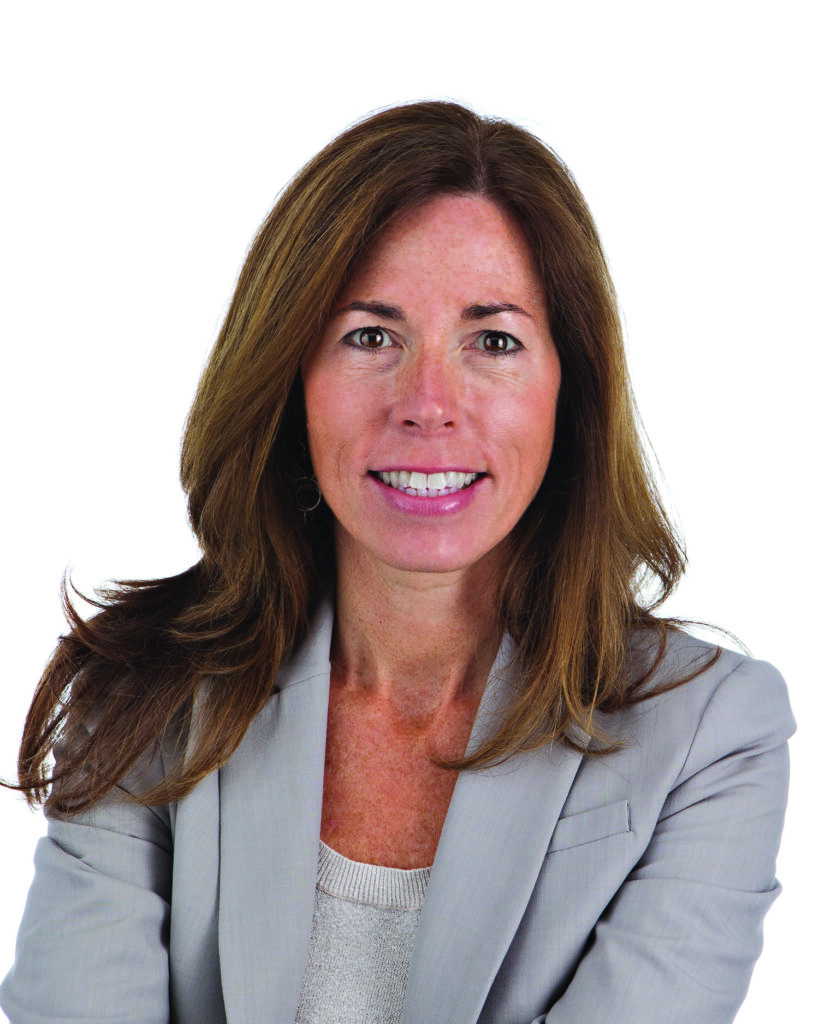 |
 |
|
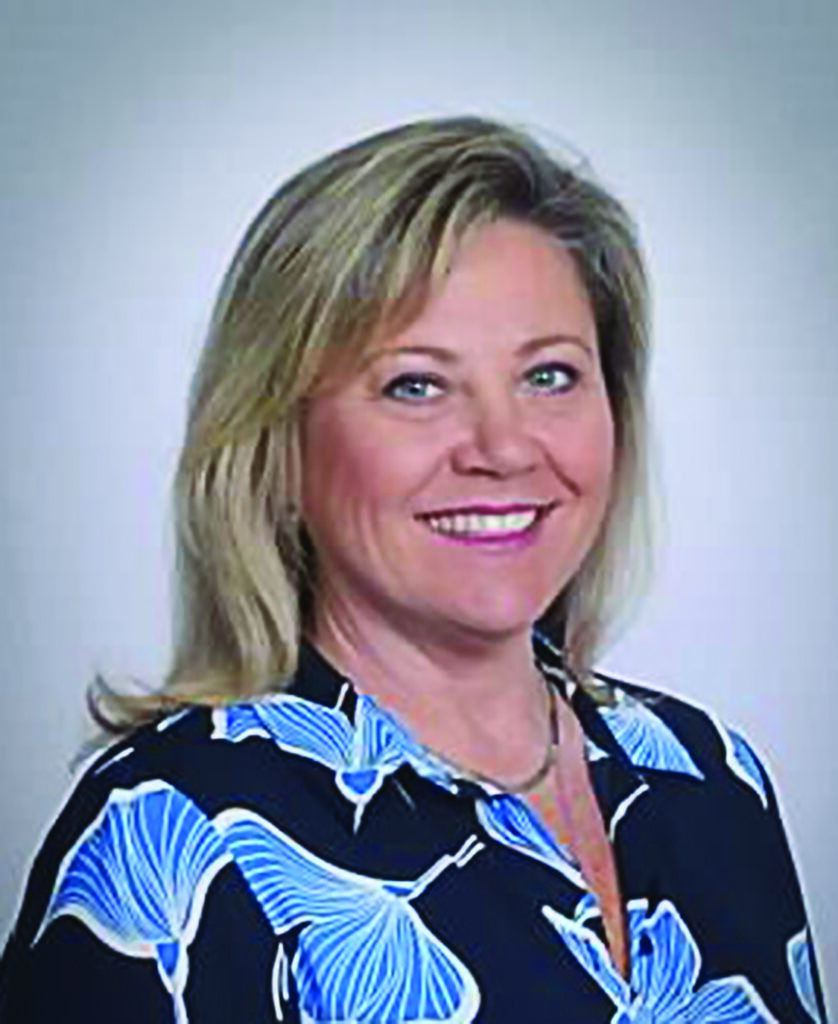 |
| From left – Kenisha Middlebrooks, Susanne Trotta, Amy Ullsperger, Mary LaGuire, Shellie Jarus | ||||
Q: What is one thing you wish more people knew about women in the cleaning industry?
Craven: How resourceful and resilient we are! Many of us have worked for companies that are, or once were, smaller family-owned companies where we wear many hats and perform cross-functional work. And we do it well!
Brutosky: There are so many trailblazers! Yes, today, there are still far fewer women than men in the industry, but rewind 25 years ago, and you’ll find the likes of female entrepreneurs Meredith Reuben and Linda Silverman, who paved the way for thousands of women professionals both in and outside the industry.
Manion: It’s a wonderful group of women, many who are pioneers in the industry and have mentored, encouraged, and led women like me to achieve success. I now have the great honor of doing the same for the next generation of women!
Silverman: Women in the cleaning industry are unique in their ability to collaborate, and their presence will make an organization a better place to work.
Gambardella: We have tremendous talent in this industry—individuals and leaders who are committed to making a difference. Kimberly-Clark Professional encourages gender equity in the industry by participating in organizations such as ISSA Hygieia. Especially during times of transformation and change, all leaders have a great opportunity to reframe the game and be bold. When women see other women leaders successfully grow and advance their careers by delivering strong results and developing high-performance cultures, it creates an inspiring view of the future for our industry.
Vlahakis-Hanks: I would love for more people to know that women lead some of the most successful companies and play critical roles in the cleaning industry. Historically, women have been the biggest consumers of cleaning products, so having women in key leadership roles is critically important because they understand your consumers. There are more women in leadership roles than ever before, and studies now show that diverse leadership yields powerful results for the bottom line. Executive teams with more than 30% women are more likely to financially outperform those with fewer women, and executive teams in the top quartile of ethnic and cultural diversity are 36% more likely to outperform financially. As a certified Women’s Business Enterprise and Minority Business Enterprise, we’ve created a corporate culture of diversity and empowerment, and I’m incredibly proud that 60% of our C-Suite and top executives are women and 40% are BIPOC.
Starr: This is a driven group of women with a real passion for the industry and elevating others.
Gibbons: Women are a powerful force within the industry—we have the work ethic to get the job done and the empathy to understand all levels within the industry.
Sztainberg: There is a lot of talent and knowledge within women in the cleaning industry … they should take advantage and network!
Snider: Women in the cleaning industry are smart and caring problem solvers.
Neff: Some things I wish more people knew about women in our industry include the challenges that women face every day. From 4:30 a.m. staff call-outs to 9:00 a.m. budget meetings to back-to-back site visits—and more—there are few easy days. Fold in motherhood, relationship management and self-care become a luxury. But the opportunity to make an impact far outweighs the sacrifices. The cleaning industry is so diverse that your reach and ability to positively disrupt are endless.
Hall: I wish more people were aware that women tend to look at a problem from many different angles. We think through the various possible outcomes and impacts on others. Having multiple ways to solve a problem can be a very effective way of creating a positive change on people and processes. So give us a chance to be heard and take a chance on what we can achieve.
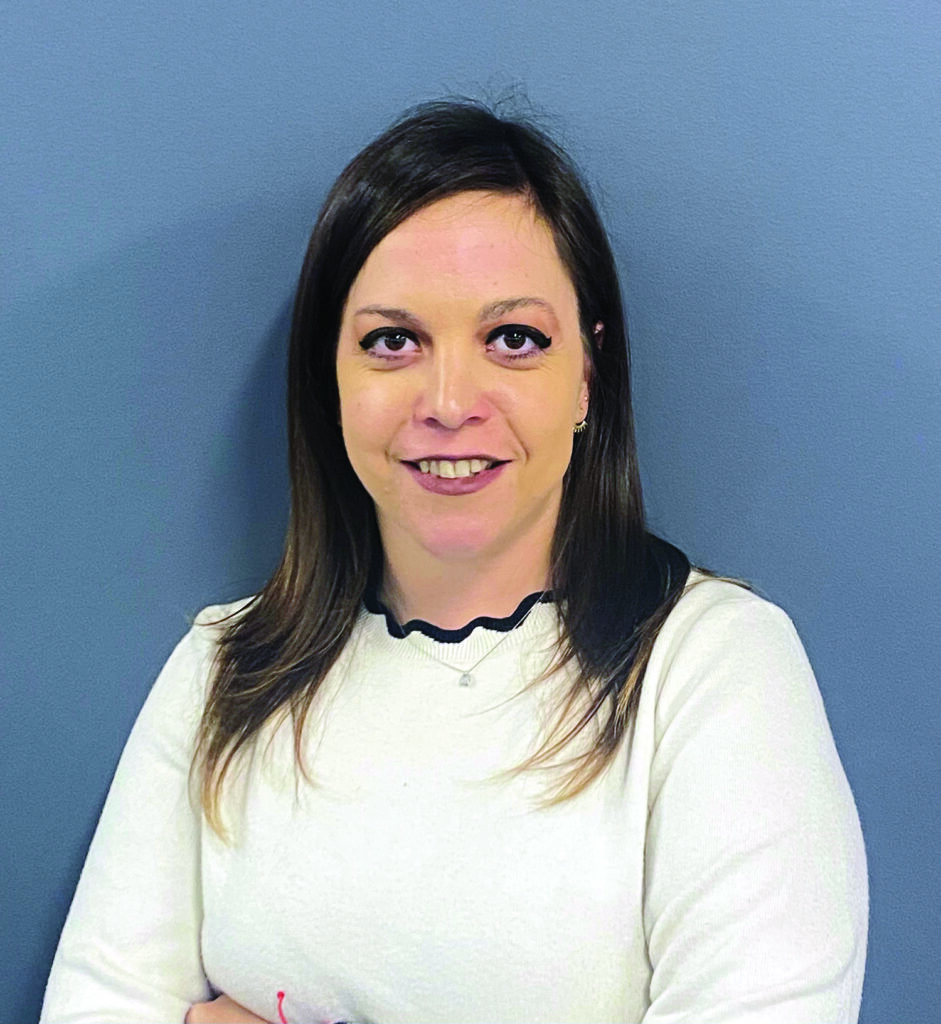 |
 |
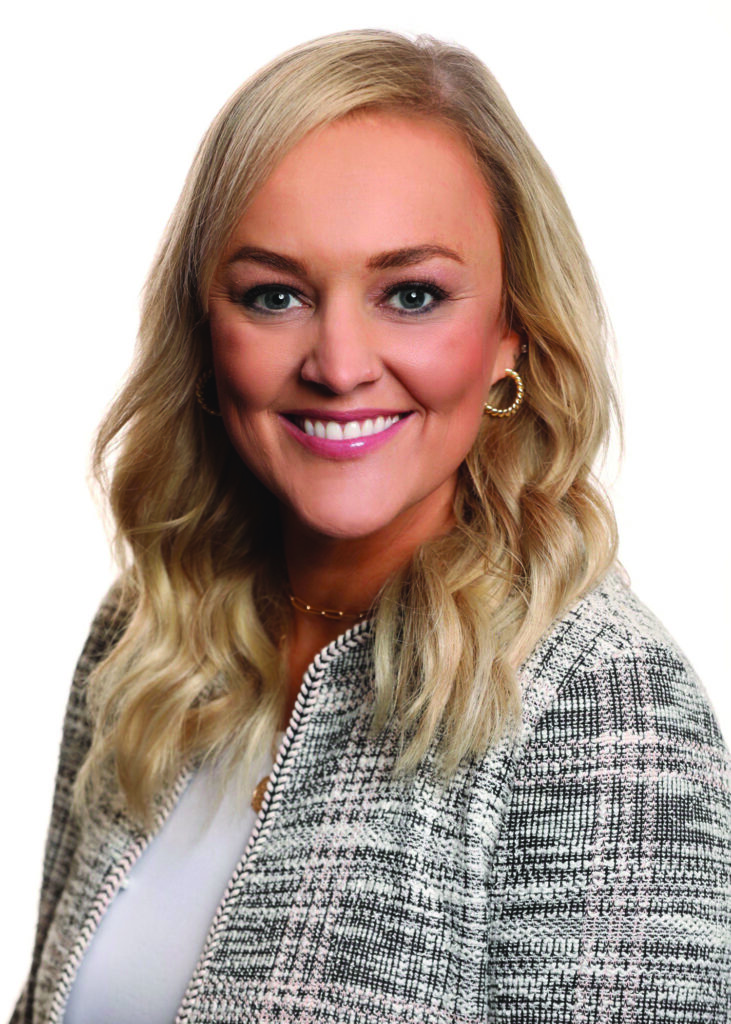 |
 |
 |
| From left – Giorgia Giove, Holland Russell, Jaclyn Helminiak, Kimberly Morgan, Karen Townsend-Maria | ||||
Q: What additional changes do companies need to consider to advance more women leaders across the industry?
Giove: Companies can advance more women leaders in the cleaning industry by addressing bias and discrimination, offering flexible work arrangements, providing mentorship and sponsorship opportunities, and promoting transparency and accountability. Addressing unconscious bias and discrimination can involve training programs and diversity initiatives. Offering flexible work arrangements such as remote work or hybrid work schedules can help attract and retain female talent. In addition, providing mentorship and sponsorship opportunities can help women build networks and advance their careers. By implementing these additional changes, companies can create a more equitable and inclusive workplace and at the same time advance more women leaders in the industry.
Russell: Companies should provide mentorship and sponsorship opportunities to women, which can help them develop their skills and advance in their careers. This can include pairing women with mentors or sponsors who can provide guidance, advocacy, and networking opportunities. Companies should prioritize diversity and inclusion in their hiring, retention, and promotion practices. This includes recruiting from diverse talent pools, establishing employee resource groups, and promoting a culture of inclusivity and respect. Overall, advancing more women leaders across industries requires a sustained and ongoing commitment to these changes, as well as a willingness to adapt and evolve over time.
Helminiak: I think companies should better encourage and promote organizations such as ISSA Hygieia for both women and men to join. I also believe that involvement in a Mentoring Program is key in helping advance women leaders by connecting them with other leaders and role models.
Frey: To promote more women leaders across the cleaning industry, companies should consider implementing a clear pathway for career advancement, complete with mentorship opportunities. Providing guidance and support can help women navigate challenges and excel in their careers. Additionally, organizations should ensure they thoroughly understand the various roles and responsibilities required to be a leader in the industry.
Morgan: First, continue to hire them, and then once they have joined the respective organizations, put support systems around them for mentorship and provide them with professional development and growth opportunities internally and externally. And finally, compensate them appropriately.
Imm: Invest in family-centered benefits such as subsidized childcare, strong health care benefits packages, and paid sick days. Not only women but all families and workers will benefit, and frontline worker roles will be elevated. Invest in technology and advancements in our industry. The best employees (both men and women) want to work in a forward-thinking industry that prioritizes higher-order impacts like healthy workplaces and schools. All too often, our industry is associated with cheap products and old ways. Don’t be afraid to solicit feedback from women in your organizations and find proactive ways to continue to improve based on that feedback.
Karen Townsend-Maria, strategic account director, Nilfisk: Remove barriers that keep women from pursuing leadership roles: flexible work and travel, job description wording, maternity leave options, talking about the imposter syndrome, more confidence building among leadership teams, advocates, etc.
Middlebrooks: Internal learning and development for frontline and entry-level managers are essential. This requires creating time and opportunities to attend external training opportunities or committing to internal L&D for upskilling future leaders identified and those that are eager to grow their skillset!
Trotta: Mentorship. Mentorship. Mentorship. Let’s open the eyes of young women to a market that has much to offer. Statistics prove that diversity breeds success. Let’s start with young women in high school, college, and the trades and show them a path and future in an industry they hadn’t considered. And be sure they have a voice and are heard. We have all met someone who has worked their way up the ranks into leadership positions, and providing mentorship programs provides a strong base for that growth. Ask your emerging female employees where they see themselves in five years and discuss what is needed to advance two positions within the company.
Ullsperger: Women need additional flexibility in their work-life balance, as many women are also mothers, wives, and caretakers. Better maternity leave policies, work-from-home options, and support from their leaders all go a long way in helping a woman balance the demands of life both in and out of work. Empowerment is also critical–give women a voice. Listen to their ideas and take them seriously. Support them in their initiatives and encourage them to speak up. The old boys club mentality is changing, and companies need to ensure that they have an equal and fair representation of women in leadership positions to allow our ideas and perspectives to be heard. We represent half of the human race, and it’s time that representation is better demonstrated in the boardroom.
LaGuire: Companies can start by making all leadership positions equally accessible to both men and women, measuring them on the same skill set and standards, and awarding the position accordingly. For example, if a company truly values communication, team building, and empathy as soft skills in a leader, then that is what the candidates should be measured on. Also, Companies can encourage women to apply for more leadership roles. Women often have the skill set to be a leader but don’t apply because they don’t feel like they check 100% of the boxes. The McKinsey Quarterly in 2008 said men typically applied for promotions when they only met 60% of the required qualifications, while women only applied when they met 100% of them. Lastly, companies can offer equal pay for the same leadership positions. According to Pew Research, the gender pay gap is still the same as it was two decades ago, with women getting paid 82% of what men do.
Q: How has the ISSA Hygieia Network Mentoring Program benefitted you?
Brutosky: I participate as a mentor in the program and sometimes wonder if I have learned more than my mentees. Our discussions have given me the opportunity to reflect on my own career and identify turning points that help me provide better advice and guidance to those I mentor formally and informally! Being a mentor also helps me feel that I am “giving back” to the community of coaches and allies that supported me throughout my career.
Craven: The young women I have mentored have shared their unique perspectives with me, allowing me to see workplace challenges from their point of view. This has helped me become a better leader.
Silverman: My participation in the Hygieia Mentoring Program has been a truly rewarding experience. I have had several mentoring relationships over the past four years. On a personal level, the relationships we developed have been mutually beneficial. I learned from every interaction, and the experience has enhanced my skills as a business leader. I would encourage everyone to seek a mentor for their career as well.
Gambardella: I am grateful to the ISSA Hygieia Network for putting me in the company of leaders who also believe in delivering results today while striving to do more for our teams and customers tomorrow.
Helminiak: The mentoring program has allowed me to connect with a women leader in the industry and has helped me advance my career as I took on a new role with my company a few years ago. My mentor helped me through the interview process and provided guidance and feedback that helped me grow in my career.
Vlahakis-Hanks: As a member of ISSA for over 50 years, we were proud to be the recipient of the ISSA Hygieia Network Employer of the Year in 2017 and recognized for our long-standing commitment to supporting, mentoring, and promoting women at ECOS. Mentoring has been a foundational pillar for our success for many years, and we encourage our team members to not just work with mentors but also to be a mentor to others on their journey to success in the cleaning products industry.
Imm: I have been a mentor in the Hygieia Mentoring Program several times. The main thing I have gained from this program is broader and deeper industry connections. Learning more about other companies’ approaches to supporting women, and sharing best practices, has given me more ideas on how to keep advancing women in my own organization and resulted in some lasting friendships, too.
Gibbons: I have gained valuable expertise and lifelong friendships – your network is where you can turn to help find the right path.
Middlebrooks: The ISSA Hygieia Network Mentoring Program has helped me grow my career and leadership skills through intentional partnerships, networking, and education. I have had the opportunity to engage with women and men leaders within the cleaning industry that have encouraged me to challenge myself and those around me to dedicate time for continuous improvement, become allies for women in the cleaning industry, and advocate for career growth. I have also had the honor of being published, awarded the 2022 Rising Star, and serving on the Education committee. My confidence has grown in me due to many of these opportunities and representations I’ve witnessed through ISSA Hygieia Network, which is beyond words but executed in humility and gratitude.
Hall: As a mentor, I love the opportunity to watch my mentee grow and soar in her role. It’s great to connect, brainstorm and plan around new opportunities.
The future for women business leaders
As it stands right now, the future looks bright and promising, filled with opportunities for growth and success for the women in our industry. Despite challenges over the years, the impact women have on companies, facilities, and organizations is significant and will only get more impactful moving forward.
The industry has seen and experienced a shift in attitudes and perceptions regarding the leadership abilities of women. As more companies and organizations strive for diversity, equity, and inclusion, this will open more opportunities for women in the industry to lead and excel in their career paths.
With continued efforts to promote gender equality and empower women in leadership, the entire cleaning industry can stand united in fostering a more diverse and innovative business landscape.
What can you do right now? Look for opportunities, such as with the ISSA Hygieia Network, to show your support. You can make a difference.

















